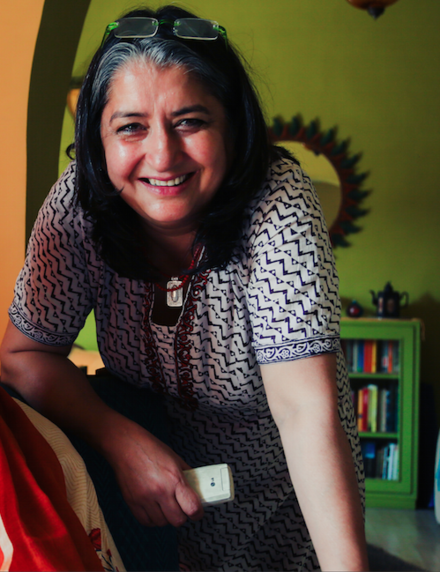In a chat with G20, Smita Bharti, executive director & president of Sakshi—a rights based NGO—talks about sexual abuse and how to tackle it. Bharti received Karmaveer Puraskar for Social change in 2016. Excerpts from the interview:
Q. What is Sakshi all about? Please tell us about the journey you have had so far?
A. Sakshi works to address and prevent gender-based violence. We emphasize prevention of harm by educating people on issues of sex, sexuality, consent and personal boundaries. I am leading Sakshi. But I am also a playwright and theatre practioner. Through my works, I explore the dynamics between
Q. How do we draw in through national and state level dialogue and informative education, the boundaries that should be adhered to, for sexual abuse prevention?
A. The answer is simple, but the execution requires hard work. PREVENT HARM BEFORE IT OCCURS. To prevent sexual abuse, we must own the sexual language. To disguise our discomfort, we throw moralistic anxieties around sex against those who are harmed instead of harm-doers, because we have simply accepted that sexual violence against children and women is a fact of life that cannot be interrupted or stopped.
Q. How do we work towards collectively protecting and keeping safe the most weaker, vulnerable female members of our society?
A. While it’s important for us to re-imagine different forms of accountability, we could be asking, how we can try to prevent sexual abuse from happening. And for that I would say, families and communities have to come together. It is critical for adults to understand that it is their responsibility to prevent children from being sexually abused, and in order to do that, they must learn to unlearn the denial, silence, shame, and stigma surrounding the topic of child sexual abuse, and equip themselves with tools, skills and information to prevent harm, while creating accountability for harm-doers.
Q. How do we shift the blame game, tell us something about the self-annihilation and the victim mode?
A. The abused internalise powerlessness and choicelessness. Most voices around them reinforce, “it’s all your fault. You did not protect yourself enough.” It will take consistent, concerted efforts from all of us to build a culture where the focus is not on blaming the victim-survivor, but holding the abuser and the root causes that make the abuse possible, accountable. And we are all complicit if we continue to allow an environment where abuse is possible.
We cannot just expect for victims-survivors to simply “get over it” in the absence or scarcity of resources to support their journey into healing, whether is the failing criminal justice systems, or inaccessible mental health mechanisms or family and communities trapped in their own shame and stigma.
Like bell hooks has said, to move from pain to power is a lot of work and this shift is possible only when young boys and girls learn the meaning of consent and personal boundaries, and adults, understand that they are accountable for enabling victims — survivors to claim back their power.
‘To prevent sexual abuse, we must own sexual language’
इस शब्द का अर्थ जानिये
- Advertisement -

